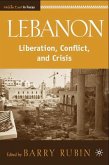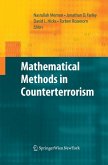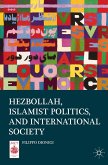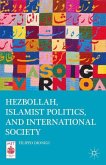This study demonstrates that Syria's role in the Middle East has been, since 1974, an unabated terrorist war against all attempts to resolve peacefully the Arab-Israeli conflict. Marius Deeb provides evidence that Syria's role in Lebanon, since 1975, has been to perpetuate the conflict among the various Lebanese communities in order to keep its domination of Lebanon.
"Marius Deeb has written an authoritative, knowing book on the ways of dictatorship in Syria. It offers an unflinching analysis of the Syrian regime of Hafez Assad. Subtle, and superbly researched, it is the work of a historian who knows his way around the politics of the Arab world. A first-rate book." - Fouad Ajami, Johns Hopkins University School of Advanced International Studies
"This is a major contribution to the study of inter-Arab politics and, more generally, of contemporary Middle East politics. Professor Deeb presents a meticulously researched and argued assessment of Syria's policies in Lebanon, a subject on which he is a leading authority. The book's point of view will arouse considerable debate and controversy, thereby increasing its visibility and circulation. Years from now, this book will be cited as a landmark contribution in the field." - Naomi Weinberger, Ph.D., Director, UN Studies Program, School of International and Public Affairs, Columbia University
"This is a major contribution to the study of inter-Arab politics and, more generally, of contemporary Middle East politics. Professor Deeb presents a meticulously researched and argued assessment of Syria's policies in Lebanon, a subject on which he is a leading authority. The book's point of view will arouse considerable debate and controversy, thereby increasing its visibility and circulation. Years from now, this book will be cited as a landmark contribution in the field." - Naomi Weinberger, Ph.D., Director, UN Studies Program, School of International and Public Affairs, Columbia University








